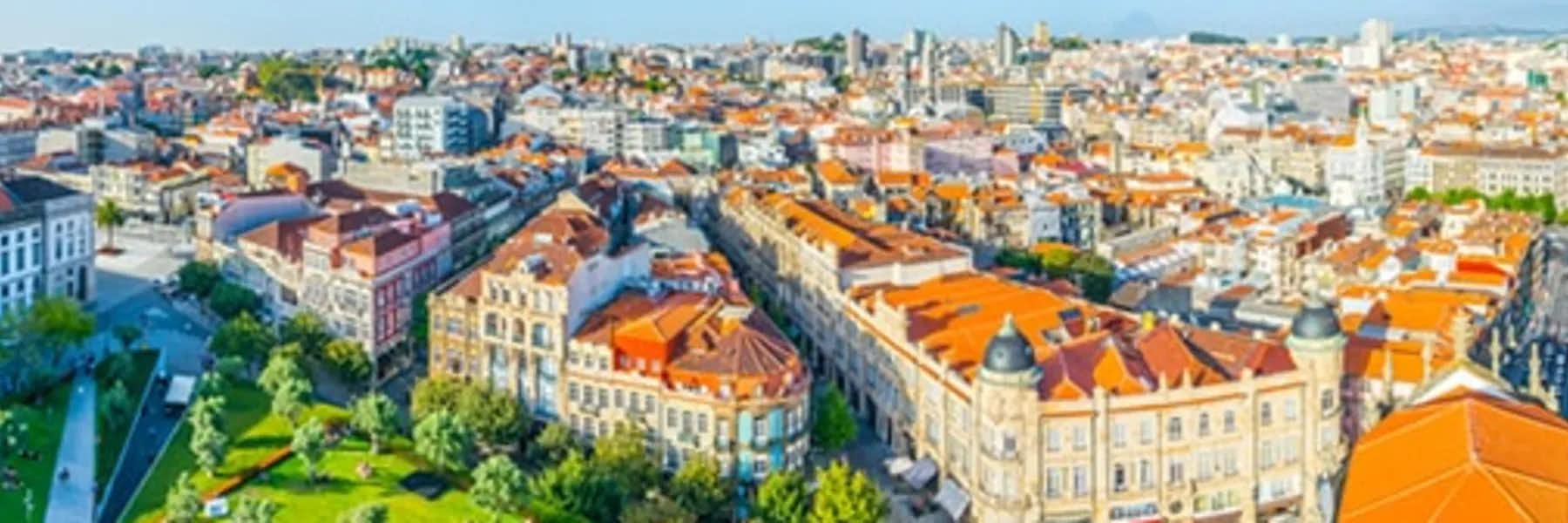If you're one of those lucky people who can work online from just about anywhere on earth, where should you go? For me, Portugal is an ideal choice. It boasts the cheapest cost of living in Western Europe, reliable WiFi throughout the country, friendly locals, and some amazing accommodation rental bargains—especially if you stay for a month or more at a time.
As a jet-setting copywriter, I love exploring new cities in inviting global locations where I'm able to combine client work with sightseeing and a sampling of local food and culture. Authoring e-books, crafting product descriptions, creating articles, and writing marketing copy for businesses is fulfilling, profitable, and fun. The best part is that I can do it wherever the living is easy, the internet is functional, and the scenery outside my apartment door is inviting. The world is my office.
For remote work, Portugal really ticks all the boxes: it's clean, safe, affordable, and incredibly beautiful, whether you choose to experience its beach areas, mountain regions, or thriving cities. With world-class infrastructure, fascinating history, and a laidback, Old World vibe, it's a wonderful place to combine online work with a little adventure.
Many digital nomads find that Portugal's two largest cities offer the best of both worlds: all the attractions, activities, and nightlife you expect from major urban centers, combined with a chilled pace that puts you in relaxation mode from day one. Because both Lisbon and Porto are quite used to overseas tourists, English is widely spoken too.
So which is better for a remote worker?
Well, having lived and worked in both, I really can't pick a favorite—they're both exceptional and have their own unique feel. In Lisbon, a must-do is to take a colorful local tram down winding city streets to one of the many great seafood restaurants by the bay. In Porto, I'd recommend a stroll through narrow cobblestoned lanes on your meandering way toward the iconic Dom Luís I Bridge above the Douro River: a great spot to watch the sun set.
Price-wise, Porto and Lisbon are pretty similar, except when it comes to rental costs: an Airbnb apartment in Porto will usually be about 30% cheaper than a similar abode in the Portuguese capital. I never spent more than $45 per night in apartments in either city, even in modern digs in central locations. With WiFi included in the cost, you don't need to pay for a co-working space in town, either. Having a kitchen means you can also save money by cooking at home instead of eating out every night. It's possible to live quite well in Portuguese cities for less than $1,500 a month if you watch your budget and shop around for the best-priced accommodation.
For food shopping, local markets are definitely the way to go. Fresh seafood, Iberian pork, locally made cheeses, and straight-from-the-farm produce are available at prices up to three times cheaper than what you'd pay for equivalent items in the U.S. A hearty restaurant dinner with wine and dessert shouldn't cost you more than $20 if you avoid the touristy spots and eat like a local.
The seafood in Lisbon and Porto is as good as anywhere in Europe, so be adventurous and try some sardinhas assadas (freshly grilled sardines—typical Portuguese comfort food), spiny lobster, or arroz de tamboril (monkfish with rice). I dined on grilled octopus about three times a week while I was writing in Portugal: it was consistently affordable and always delicious.
If you feel the urge to explore further afield, both cities make convenient bases for day trips too. From Porto, you can join a boat cruise up the Douro River into spectacular wine country, visit Peneda-Geres National Park, or check out the lovely smaller cities of Guimaraes and Braga nearby. From Lisbon, you're only 21 miles away from the picturesque coastal resort town of Cascais as well as the historical national palaces and lush, forested mountains in and around Sintra.
So, if you work remotely and want to base yourself where the lifestyle is hard to beat, take your pick between Portugal's two most famous cities... Or better yet, do both.
Related Articles
The Perks Of Working Remotely From Portugal
